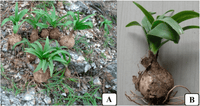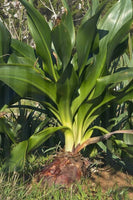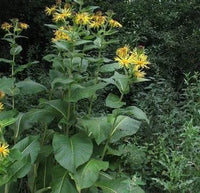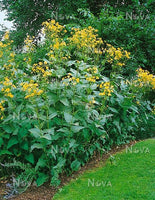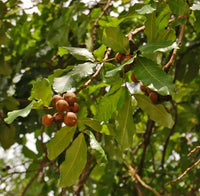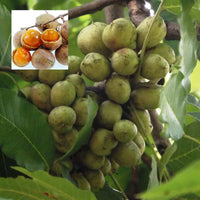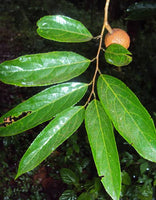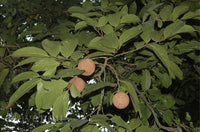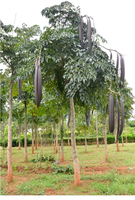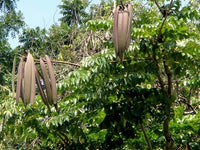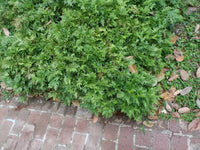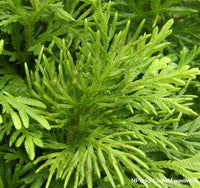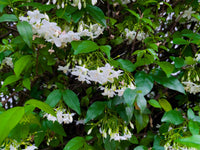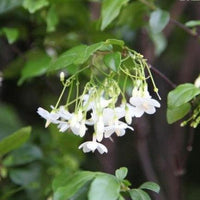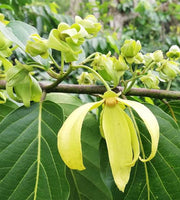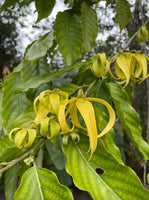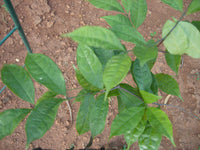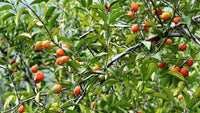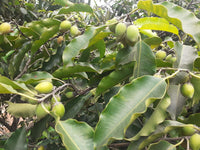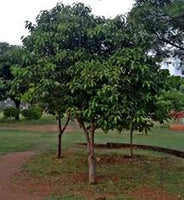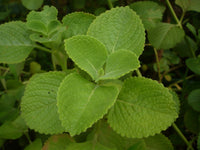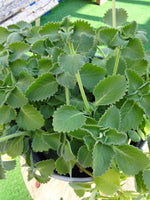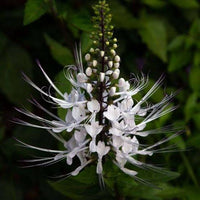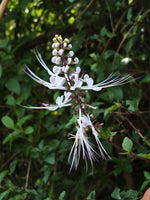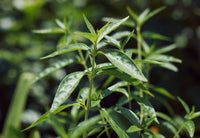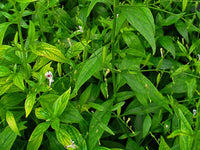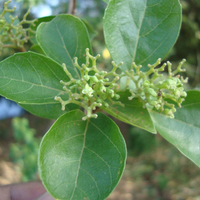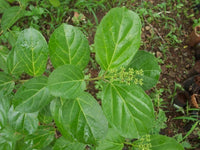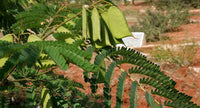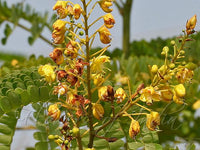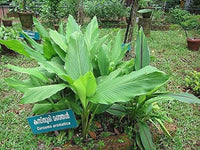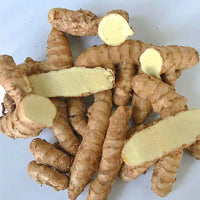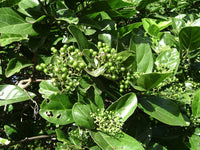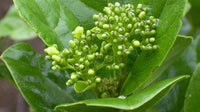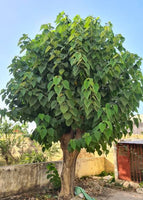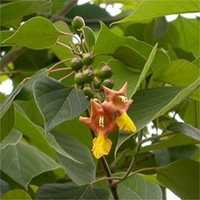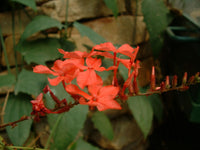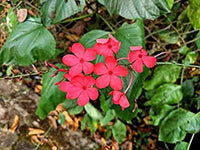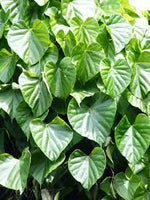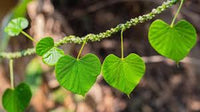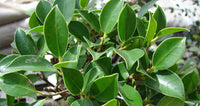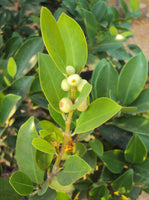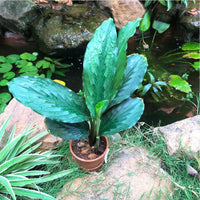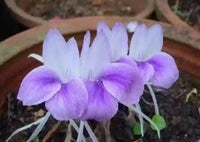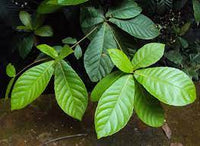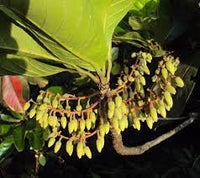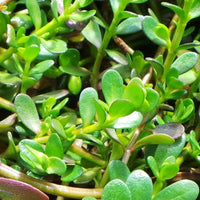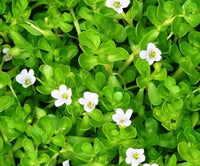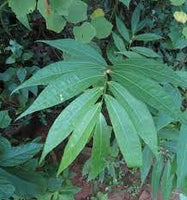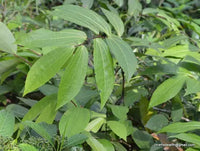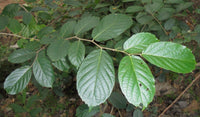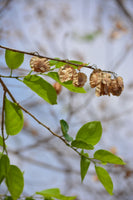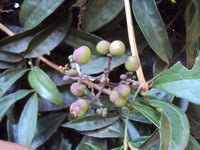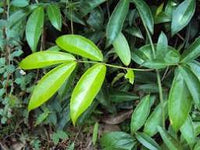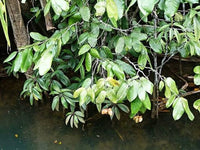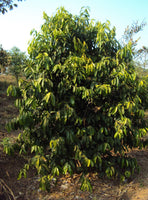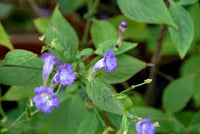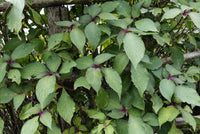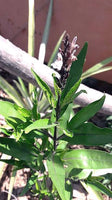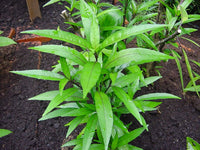The custard apple (Annona squamosa) is a small, semi-deciduous tree or shrub that's native to the New World tropics. It can grow to be 3–8 meters tall, with a thin, gray bark and a spherical or flattened crown. The tree has fragrant, pendulous flowers with six to eight fleshy, curved petals in two whorls, and many stamens and pistils. The leaves can be leathery or hairy, and are generally ovate with smooth margins
The custard apple's fruit is often scaly and succulent, and sometimes segmented. It's roundish in shape, with a knobby surface and an indent at the base that can be deep or shallow. When ripe, the skin is yellow to brown, and the fruit has many small, dark brown seeds embedded in the whiteish pulp, which is sweet-tasting. The fruit is popular in local markets and is typically eaten raw or added to smoothies and desserts
Custard apple trees are also known as sugar apple, sweetsop, buah nona, seri kaya, anona, nona, and bullock's heart. They are popular for home gardens because they require little maintenance and can fruit even when kept small. They are also drought tolerant and butterfly host plants.
-
LeavesThe leaves can be used to make blue or black dyes for the tanning industry. They can also be used to make a paste to apply to wounds, bruises, and boils. The leaves contain antioxidants and fibers that can help regulate blood sugar, fight free radicals, and prevent cell damage. The leaves also have anti-inflammatory properties that can help wounds heal. Crushed leaves can be applied topically to manage ulcers and wounds, and a decoction of the leaves can be taken to treat dysenteryWoodThe wood from custard apple trees is soft, fibrous, and durable, and can be used to make yokes for oxen.FruitThe fruit can be eaten fresh by cutting it in half and scooping out the pulp. It can also be blended into smoothies, ice creams, desserts, sauces, and fruit salads. The fruit is rich in vitamins C and B6, fiber, copper, niacin, and iron, and has many health benefits. For example, the copper, niacin, and fiber can help with digestion, lower cholesterol, and reduce the risk of type-2 diabetes. The iron can help treat anemia, and the potassium and magnesium can help regulate blood pressure. The seeds may also contain prebiotics, which can help maintain gut health and regulate bowel movementsSeed oilThe seed oil contains amino acids and essential fatty acids that can help moisturize hair and treat dandruff and itchy scalps. It can also be used to regenerate the hair and scalp, and has similar effects on the skin





































